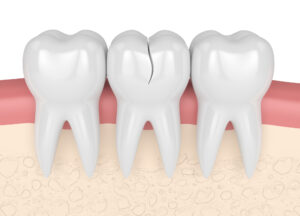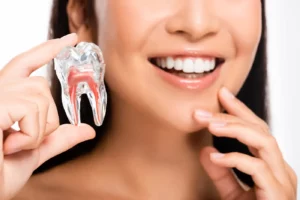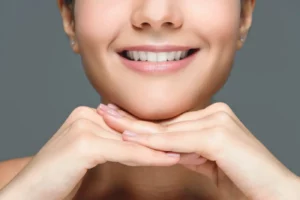
Veneer Service
Veneers. Porcelain veneers are applied to your teeth to permanently whiten your smile (veneers never stain).

Time Frame for your Veneers
Two visits over three-to-four weeks
Benefits of Veneers
With veneers you won’t need to bleach your teeth ever again. Incredible Smiles veneers deliver dramatic results and a youthful-looking smile that can last a lifetime. Tooth length and shape can be enhanced as well.

Custom Veneers
The dentists at Artistic and Family Dental can give you a powerful smile upgrade with custom veneers.
In just two or three dental visits, a veneer can reverse years of stains caused by foods, caffeine and tobacco use. Special thin laminates, called veneers, can also be used to correct discolored, worn down, cracked and chipped teeth. Veneers can also be used to close unsightly gaps between teeth.
An impression of the tooth must be made and a veneer molded by a lab technician. Because veneers require a small amount of enamel to be removed, they are permanent and non-reversible.
The process involves buffing the tooth, removing an extremely thin layer of the tooth to allow for the thickness of the veneer, an impression of the tooth, and final bonding of the veneer to the tooth with special cement. A special light is used to complete the process

Veneers vs. Crowns
What is the difference between veneers and crowns?
- Veneers – Veneers are custom made ceramics that are bonded to the surface of teeth. This requires light preparation of the teeth, about 0.5-1.5mm in depth. Usually, the preparations involve only the outside surface of teeth (the side of teeth facing others when you smile)
- Crowns – Crowns are custom made ceramics that are bonded to the entire tooth the way a baseball cap fits over your head. This requires light preparation of the teeth, about 1-2mm in circumference and on top.
Traditional Porcelain Veneers And Lumineers®
Two of the most popular options in restorative cosmetic dentistry today are Veneers. Veneers are made of thin, durable porcelain material and can provide natural looking, long lasting results when prepared by an experienced, competent dentist. In order to determine which option is best for you, your dentist will consider a variety of circumstances, which include your unique dental history, your overall health, your personal desires and expectations, and her professional understanding of how your final results will meet your needs.
A traditional veneer is essentially a conservative crown. Rather than encompassing the entire tooth, a cosmetic veneer covers the visible part of a tooth preserving a large amount of the natural tooth structure. Veneers can straighten, lengthen and whiten teeth to provide a beautiful smile and even create a more comfortable bite position. For optimal results, each veneered tooth must be shaped. This means that a thin layer (approximately .5 mm) of the natural tooth structure is removed to allow space for veneer placement.
Porcelain veneers, alternatively termed “dental veneers” or “dental porcelain laminates,” are wafer-thin shells of porcelain permanently bonded to teeth that are discolored, worn, chipped, or misaligned. Porcelain veneers are non-porous (they will not stain), incredibly resilient, and “kind” (non-abrasive) to opposing teeth. When a veneer is firmly bonded to a sturdy substructure (like a tooth) it becomes very strong and durable.

Advantages of Porcelain Veneers
-
Porcelain veneers and Lumineers resist staining.
-
A significant advantage of placing porcelain veneers and Lumineers is in the nature of their material. Since porcelain is a ceramic, and therefore glass-like, the porcelain surface of veneers and Lumineers will be extremely stain resistant. Porcelain veneers and Lumineers can be used to repair minor tooth imperfections and defects.
-
Teeth that have small chips or whose surface is worn or misshapen are often good candidates for porcelain veneers and Lumineers.
-
Porcelain veneers and Lumineers can be used to cover over and conceal fillings that have become stained or discolored.
-
Old fillings and previous attempts at cosmetic bonding that have become discolored can be easily corrected with porcelain veneers or Lumineers.
-
Porcelain veneers and Lumineers can be used to make color changes for teeth that have permanent stains. Some teeth are just naturally discolored. This includes teeth that have tetracycline or fluorosis staining and those that have become darkened as a result of physical trauma or root canal treatment. In many cases these teeth are good candidates for porcelain veneers or Lumineers.In some cases porcelain veneers and Lumineers can be used as alternatives to orthodontic treatment.
-
Porcelain veneers and Lumineers can be used to close the space (called a “diastema”) between a person’s teeth. In cases where teeth are slightly crooked to extremely crooked, porcelain veneers and Lumineers can be used to create instant orthodontics.
Consultation Process
If you are interested in improving your smile, give us a call! We would be happy to set you up with a consultation appointment which would involve taking x-rays to ensure no underlying infection is present and discussing options to find the best treatment to fit your needs.
Veneer FAQs
What are veneers?
Veneers are custom made ceramics that are bonded to the surface of teeth. This requires light preparation of the teeth, about 0.5-1.5mm in depth. Usually, the preparations involve only the outside surface of teeth (the side of teeth facing others when you smile).
How long do veneers last?
Veneers can last a lifetime with proper care. This would include brushing twice a day and flossing daily.
Can veneers be removed if I change my mind?
Veneers can last a lifetime with proper care. This would include brushing twice a day and flossing daily.
Are veneers covered by dental insurance?
Veneers are not usually covered by dental insurance. However, we offer an in house insurance plan which does cover veneers and have finance options available to patients.
What types of problems can veneers fix?
Veneers can fix unsightly cracks or craze lines in teeth, discolored teeth, stained teeth, teeth that are malpositioned (if the malpositioning is not too severe, veneers can make teeth appear straight without braces), teeth that are misshapen.
Is the process of getting veneers painful?
Fortunately, veneers are not painful as they require only light preparation of the teeth. We will make sure you are numb and comfortable throughout the entire appointment.
How do I care for my veneers?
In order to ensure a long lifespan of your veneers, please brush twice per day and floss daily. Additional aids such as waterpiks are wonderful as well.
What if I’m not sure I want to commit to veneers?
If you are not sure but wondering what veneers would look like, we can make a model of your mouth and send it to a lab for a wax up. This means the lab would send us back a new model of what your teeth would look like with veneers for your consideration.
What Our Patients Say...
Dr. Zrik is the very best dentist that I have ever had. I would give this practice 10 stars if that were possible. He genuinely cares about the patient 110 %.
Everyone on the staff is always so kind and professional, it’s fabulous.
His work is exceptional
Steve F.
Dr. Zrik is one of the best dentists! I used to have such a large fear of dentists and ever since I started coming to artistic, I feel at ease. They do their best to work with your fears and get a plan together to get your dental health back to where it should be!!!!!
Heather S.
I love this practice! Prior to visiting Artistic, it had been a very long time since I had been to the dentist. Everyone here is extremely kind and welcoming. I felt safe and the providers proved to be amazing. My exam was very quick and efficient. I had a wisdom teeth extraction that went very well and also extremely efficient. Could not be happier
Malhia G.
My family and I have been coming here for years. The staff really care about your oral health and are always punctual and professional. Rosa is the best hygienist, she is very gentle and has a warm personality that makes getting my teeth cleaned a wonderful experience to look forward to. Dr. Revoir and Dr. Z always take their time to answer any questions I might have. I highly recommend this dental office.
David L.
Just a superb Dental experience. The staff and Doctors treat you like you’re their only Client. They have a membership that reduces cost of services by a substantial amount. They’re open weekends. Very caring people. I’ve been a client for nearly ten years and have never been happier. If you’re scared of Dentists, these people will take your fear away. They truly care about your comfort and well-being.
WhisperJet A.
I moved here not that long ago and found this office on google. I have to say I am very impressed. My appt was timely I did not have to wait for forever in the waiting room. The staff was very friendly and accommodating in a genuine way. The exam was through and they explained everything to me so it was easy to understand. Let’s be honest most people don’t like going to the dentist, but my experience here was as painless as this type of thing can be. Will definitely be using this as my new dentist!
TheCreativeJr
Personalized and high quality orthodontic care that you deserve

Latest Blogs

Restore a Tooth’s Function with Crowns or Bridges
When you have lost a tooth or when it is severely damaged, it is important to restore its function as soon as possible. One way

Cracked Tooth and Broken Teeth Treatment in Denver CO
If you are experiencing pain from a cracked tooth, don’t delay in seeking a broken teeth treatment in Denver, CO. See a dentist as soon

What Are Dental Veneers?
Dental veneers are a type of dental restoration that covers the tooth’s front surface to improve its appearance. Veneers can be made from diverse materials,

Beautiful Smile: How Professional Teeth Whitening Treatments Work
Did you know that tooth whitening is one of the most popular cosmetic dental procedures performed today? In fact, according to the American Academy of
Schedule your appointment now
Contact Us
Please contact us with any questions that you may have and a staff member will get back to you shortly.
- Monday:
- 8:00am-4:00pm
- Tuesday:
- 8:00am-4:00pm
- Wednesday:
- 8:00am-4:00pm
- Thursday:
- 8:00am-4:00pm
- Friday:
- 8:00am-4:00pm
- Saturday:
- By Appointment
- Sunday:
- CLOSED
Areas and Zip Codes We Serve
- Hampden
- Hampden Heights
- Hampden South
- Southmoor Park
- Goldsmith
- Virgina Village
- Kennedy
80210 80014 80111 80113 80121 80224
- Get on I-25 S from Champa St and W Colfax Ave(1.9 mi)
- Follow I-25 S to CO-30 E/E Hampden Ave. Take exit 201 from I-25 S (8.4 mi)
- Continue on CO-30 E/E Hampden Ave to your destination (0.9 mi) Artistic & Family Dental 3540 S Poplar St #301, Denver, CO 80237
- Get on I-25 N(2.6 mi)
- Follow I-25 N to CO-30 E/E Hampden Ave in Denver. Take exit 201 from I-25 N (8.6 mi)
- Continue on CO-30 E/E Hampden Ave to your destination (0.7 mi) Artistic & Family Dental 3540 S Poplar St #301, Denver, CO 80237











